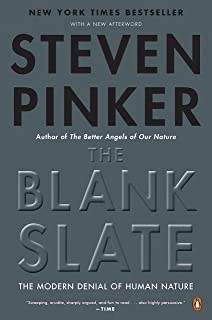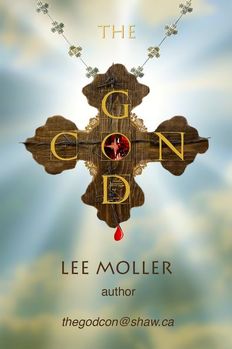Honor Before Glory; Scott McGaugh; 2016; Da Capo Press; 220 pgs, bibliography, notes, index29/12/2022  The 442 Infantry Regiment was, pound for pound (i.e. pro-rated for size), the best and most decorated fighting unit in the European Theatre. Two dozen Medal of Honors; Seven Presidential Unit Citations; 9,000 Purple Hearts; 6,000 Bronze and Silver Stars, and more. More than one medal per man! They gained fame for saving the WWII "Lost Battalion" of the 443 Infantry Regiment after they were surrounded by Germans for over a week. This book is about the rescue of the Lost Battalion and who did the rescuing. In addition to its battle record, the 442nd was unique in another way. The 442 was a segregated unit. If you are thinking they were black… close but no cigar. They were all Nisei, aka Japanese Americans, except for the officers, who were all white. All were volunteers, most from the Japanese concentration camps that were set up by the bigoted US government after Pearl Harbor. Many were from Hawaii. Canada segregated the entire Japanese population of British Columbia during the war, so we should be humble. Like the segregated black units, the Nisei were shit on by their country, but fought for it anyway. If you are a movie buff, there is the 1951 film about the 442nd's exploits called "Go For Broke" (the unofficial Regimental motto) starring Van Johnson. It is hard to find except on DVD. I recommend it. The Nisei had to beg to be allowed to fight. Finally, FDR made a speech where he described what a true American was, and how all Americans had the right to fight. He did not mention that those same Americans he was referring to were stripped of their most basic rights because of US bigotry. The 442 served in Italy with distinction. On October 24, 1944, the unit found itself in the Vosges Forest in France. In two months, the Battle of the Bulge would begin. The Vosges has Germany to the north east and Switzerland to the south east. The 441st Texas battalion was cut off and surrounded on hill 595 (595 is the hill's height above sea level). The Vosges is a very dense forest, featuring 45 degree hills and continuous cold rain and mist. The Germans were defending their homeland's border. They fought fiercely and bravely. Both sides were under-supplied, and neither side knew how poor off the other was. Both sides faced the same issues: miserable weather, foul water, little or no food for days, dwindling ammo supplies, and limited ability to treat wounded. For the Americans, one of the biggest risks was exploding trees. When hit with an artillery, trees splintered into a thousand flying knives. The 442nd was assigned the task of rescuing the 441st Texas Battalion. The German's were one thing that demand attention. Others include trench foot; acts of enormous courage and sacrifice; lack of everything (food, water, medicine, bandages etc); and friends dying every day as they fought to free the 441st. The biggest problem was resupply for the trapped Texans. Planes dropped gas tanks full of supplies that landed in enemy hands as often as they did friendly hands. Artillery was used to shell the Americans with supplies… a very dangerous procedure, as you might imagine. One soldier was killed by a can of cheese from a exploding resupply shell (the resupply shells had small charges in them). This book, like many others, documents the conditions of war… hell on Earth. There are many tear-inducing moments in the narrative. Perhaps the most galling thing about the battle was the actions of Major General John Dahlquist. He was an asshole of major proportions. Every few hours, he would get status information from the 441st and 442nd. Low on everything, fighting strength diminished, many untreated wounded etc. And every few hours, Dahlquist, the overall commander in the area, would give orders to do what he was just told was not possible to do. On several occasions, a junior officer flatly refused to carry out his orders, as they amounted to suicide for his men. The 442nd Nisei hated Dahlquist and respected their commander, Gordon Singles, for telling him to shove off. Shortly after the combat in the Vosges was over, Dahlquist assembled the 442nd for review. He was outraged that so few of them showed up... until he was informed that what he saw was all that was left of the 442nd. Dahlquist got in trouble later in the aftermath of the war for cozying up to Goering. IOW: he liked Germans better than he like Japanese Americans. Dahlquist's bigotry was baked into the army at the time. Some years later, Dahlquist attended a parade review of the 442nd. Dahlquist approached Singles in front of his men. Singles snapped to attention. Dahlquist held out his hand, suggesting that perhaps now they could bury the hatchet. Singles said nothing and held his salute until Dahlquist withdrew his hand and returned the salute. A perfect take-down. The 442nd remembered. Even after the war was over, things had not changed. Some west coast States tried to keep the Japanese from returning to their "homes" (in quotes, because their homes had been sold)! Many soldiers in the 442nd were put forward for medals. From the Congressional Medal of Honor to the Purple Heart, and everything in between. But after the war, most of the 442nd's medals were downgraded. This was blatant bigotry in action. It was not until Presidents Reagan and Clinton that some of these sins were redressed. Reagan paid reparations for stolen property and Clinton addressed the medals issue. Unfortunately, most of the major medal recipients were already dead. The last died about 10 years ago.
0 Comments
 I often complain about books that lack a decent index. This one is not one of those. The Blank Slate refers to the idea that we are, when we are born, a tabula rasa (Latin for "clean slate"), with potential to become anything. It is a central tenet of most religions. Its pals are the Noble Savage and the Ghost in the Machine. To philosophers, they are known as empiricism, romanticism, and dualism. The three get along quite well. When one fails to capture an idea, the others can step in and save the day. Ensoulation, the moment when the soul enters the body, is wrapped up in it all too. Popes and dictators like the Blank Slate, as does religion. Nobility does not like it since they are born into nobility, presumably because they know they are inherently noble. Sociobilogy has become the Standard Social Science Model. Nature versus nurture is the debate. On one side is the Blank Slate (we can become anything we want), and on the other is genetic determinism ("I yam what I yam", as Popeye would say). This creates issues. For example, any hint that our genetics dominates who we are might lead to justifiable racism. If the Blank Slate dominates, then racism is a cultural issue that can be addressed. The answer throughout the book seems to be "It is shades of gray". You are not genetically fated, nor can you just shrug off your genetic heritage. Here are five ideas that represent the "cognitive revolution".
The rest of the book analyzes human behavior from various points of view, always landing, I think, on a useful compromise between the two extremes of analysis. Three recent major discoveries that superficially support the Blank Slate have added to the demise of the Blank Slate. First, the human genome was mapped. It has a surprisingly small number of genes (34,000 or so). The small number lent credence to the idea that anything complex could not be baked in. It also opened the door for the soul (fewer genes means more room for the Ghost in the Machine). Second, computer models of neural networks have led to new ideas about cognition. And the third is neural plasticity, which suggested that the brain is like clay and can be remodeled as needed. Pinker refutes these interpretations. One look at a new-born antelope that is up and running within minutes of its birth speaks volumes. That creature was not born with a Blank Slate. The Blank Slate cannot be blank for it it is, it could do nothing. Biologists like E. O. Wilson applied the ideas of Darwin and evolution to the Sociobiology of the human race and the shit hit the fan. Wilson was attacked for years with straw man arguments. The attackers claimed that Wilson's ideas justify Nazism and genocide. Their arguments are unscientific and stupid, even to a lay person like me. Remarkably, Stephen J. Gould made some awful arguments against Sociobiology. People's reactions seemed more visceral than logical. Needless to say, all this talk about evolution and brains processing information does not sit well with the "the church". Radical religion hates these ideas and fights them tooth and nail. A note about ensoulation. The Roman Catholic Church has been very clear: the soul enters the body at conception. Period. I have two close friends that are identical twins. Identical twins occur when a fertilized egg spontaneously splits, one to three days after conception. This is a problem. Now we have two people and only one soul! This problem can happen in reverse as well (two souls, only one egg). The church's ideas are not consistent with scientific reality. It took 300 years for the church to recognize that Galileo was right. It will take longer than that before the church ditches the idea of souls. After all, if you do not have a soul, they cannot threaten you with going to hell. It is December 13, 2022 as I write this. An article about an anti-abortion judge crossed my desk. It is a good illustration of Blank Slate reasoning. Judge Kacsmaryk spoke about the sexual revolution in 2015. He said: "… sought public affirmation of the lie that the human person is autonomous blobs of Silly Putty unconstrained by nature or biology, and that marriage, sexuality, gender identity, and even the unborn child must yield to the erotic desires of the liberated state." There is actually a chapter in Pinker's book called "Silly Putty"! There is a lot of angst over human nature. The next chapters of the book devote themselves to four issues: If people are innately different, discrimination is justified; If people are innately immoral, there is no hope; If people are simply a consequence of biology, then there is no free will; and; If people are just biological products, there is no meaning to life. I have had a great deal of disdain for clinical psychology over the years. The McMartin Preschool trial, the most expensive trial in US history, is a testament to the damage that can be done by mucking about with things you do not understand. McMartin was about psychologists who accused teachers of pedophilia based on statements from eager-to-please, prompted children. Pinker seems to share my disdain. But, over the last few decades, it would seem clinical psychology has matured and is now much more empirical in nature. A lot of data has been gathered, much from studies of separated twins and separated siblings, that have lead to some conclusions that drive your average parent nuts, until they understand what the conclusions actually mean. The issue circles around the debate between genetics (nature) and nurture (child rearing). For example: Insanity is hereditary… you get it from your kids. (Pinker's book is not without humor.) We are not all the same. Sex makes a big difference. It is generally true that males compete and females choose; males want quantity, females want quality. This is a natural outcome of evolution and the degree of investment each parent has in their offspring. Females are generally much more invested in their children than males, if for no other reason than the fact that sex takes minutes, but gestation takes nine months (for humans)… and that is often just the start. The remaining chapters of the book focus on the impact of the Blank Slate on Art, Politics, Gender, Violence and Children. The chapter on Children was quite interesting. Using three rules and a lot of relatively new empirical data, some surprising conclusions can be reached. The rules are:
Heritable traits become more so over time (e.g.: you get more like your parents as you get older). That is surprising. It is clear that the basic measurable traits of people are determined largely by their genes. Separated twins are remarkably similar to each other. Separated siblings less so, because they share less DNA. There is little a parent can do to change this. This does not mean that there is no such thing as "good parenting", just that good parenting is not going to turn a natural introvert into an extrovert. This book was a long read, but worth it. It covers a lot of ground. This is hardly surprising since human nature is so complex. The general sense I had was that Pinker's analyses always seems to land in about the same spot that my instincts would land me. Of course, he gets there through strong arguments. The issues raised by human nature get a lot of people really riled up (IMHO… mostly religious nuts). So much so that they fight back with a barrage of straw man arguments that seem to never want to die. When you say "some", they hear "all", and have a fit. When you say "may", they hear "must", and have a fit. You do not need to understand statistics and probabilities to understand Pinker's arguments. You should have a reasonable understanding of what correlation coefficients (CCs) are and what they mean. The short version is this: Imagine you are watching two stocks. A CC of zero between the two stocks is saying that the stocks are unrelated. A CC of 1 is perfect correlation: When one stock goes up, so does the other, in lock step. A CC of -1 means when one stock goes up, the other goes down. Any other value means that sometimes one stock will go up and the other does not, with a certain probability. My philosopher friend Dale Beyerstein has read the book and my comments. I have made some small changes to my essay based on them. I thought the following from him was worth including: "Second, a substantive argument between you, me and Pinker: I think that religious types who blabber soul talk (no, they’re not Black!) are less are less driven by the blank slate hypothesis than Pinker or you argue. Yes, many think they need the blank slate idea to say that you, as essentially a soul, can choose anything you want (innate parts of the brain won’t stop you). But the real driver is their need for the free will defence so they can blame us rather than God for evil. There’s nothing stopping them from a “middle ground” position that holds that much of our behaviour is hard wired, but the important part of the soul that we use to choose right or wrong transcends the parts that are hard wired. In fact, many fire and brimstone preachers bang on and on about how we (our souls) must use our reason (in the soul) to transcend our bodily pleasures (sex!) that are so evil. In other words, religious types have less need for the blank slate than ----- Studies (substitute ‘Women’s’, ‘Black’, ‘Fat’, &c.) people in universities." Aside on Logical Fallacies There are many, many logical fallacies (more than 100). You should learn to recognize some of the big ones. Google the "argument from ignorance"; the "straw man" (see below); and confirmation bias as a start. If you have more time, just Google "logical fallacies". Straw man arguments are a common logical fallacy. Since I mentioned them in this text, here is an example of a straw man argument. You say "I believe in evolution." Your opponent replies "So you think we descended from apes!" The opponent is making a straw man argument by attacking you for something you did not say, nor even believe (the straw man). (We are not descended from apes. Mankind and apes share a common ancestor.) |
AuthorLee Moller is a life-long skeptic and atheist and the author of The God Con. Archives
May 2024
Categories
All
|

 RSS Feed
RSS Feed